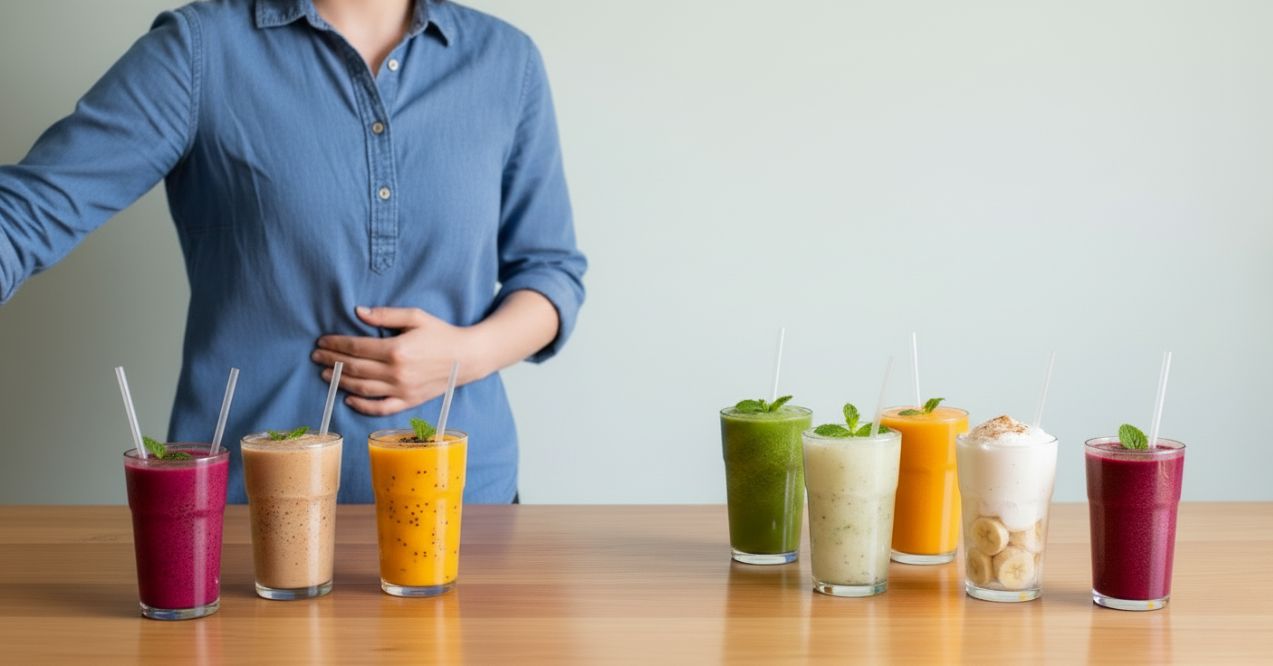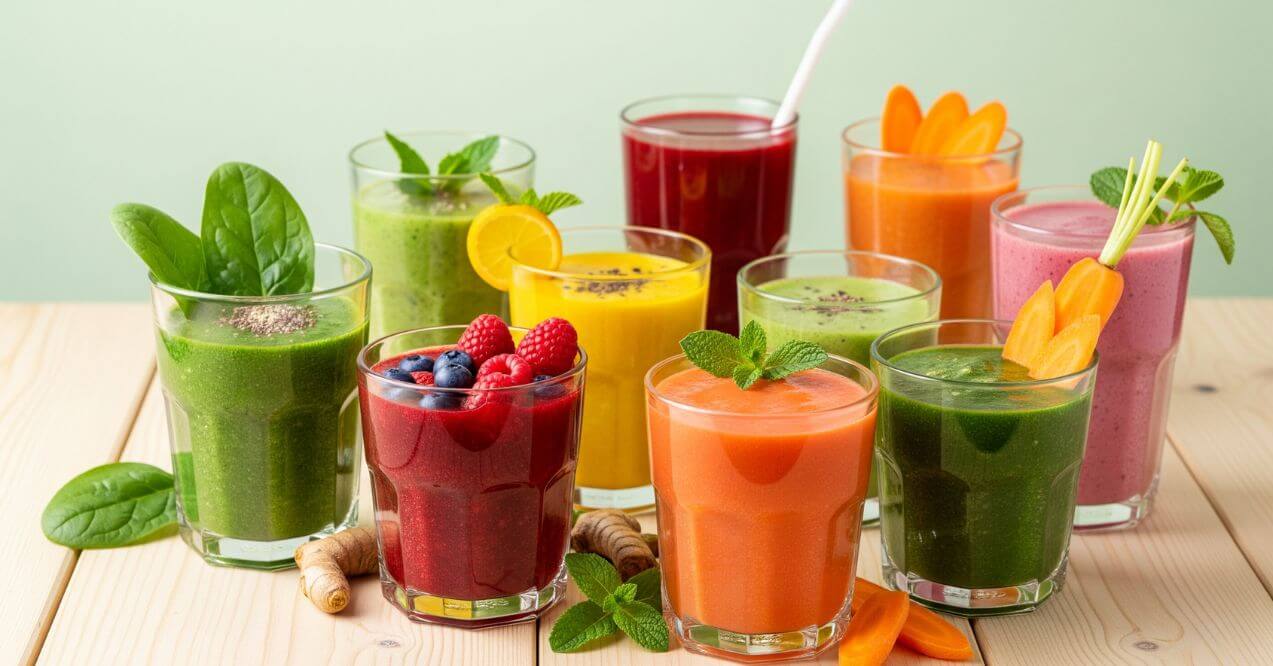7 Juicing Recipes for Lowering High Blood Pressure
Medically reviewed by our experts
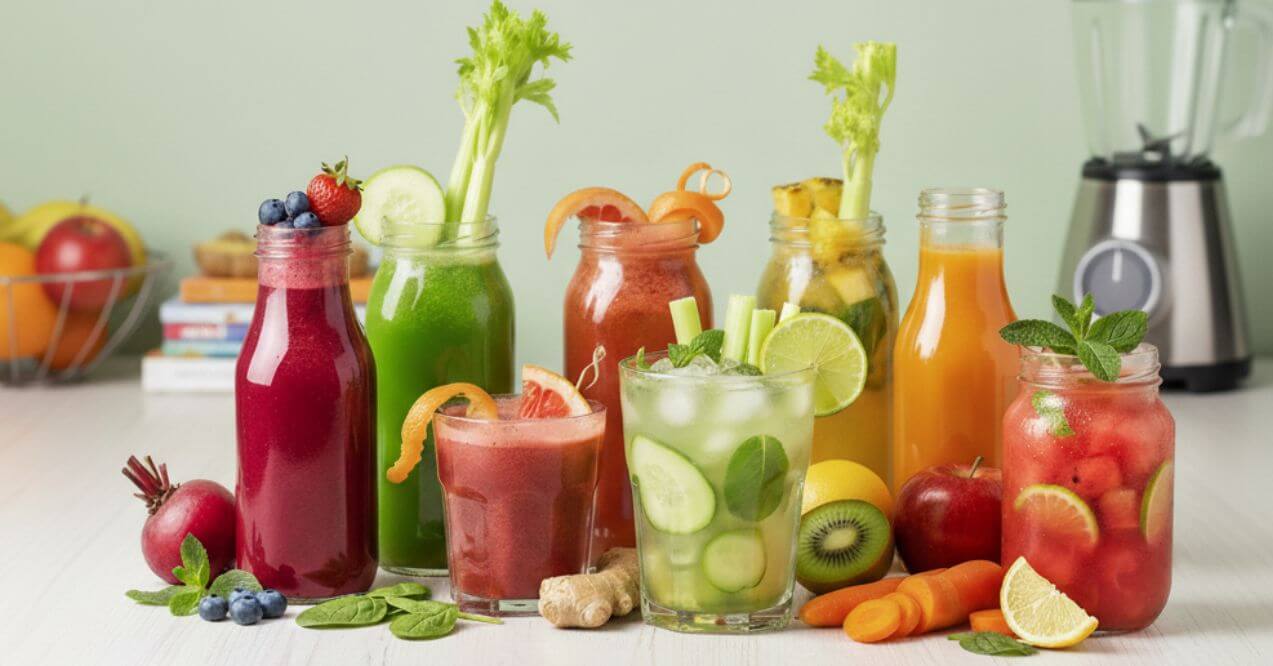

Managing blood pressure through diet makes a real difference in daily life. These juicing recipes for high blood pressure combine specific nutrients for vascular function. Fresh juices deliver concentrated vitamins directly to your system.
High blood pressure puts extra strain on vessel walls. The force of blood against arteries weakens them over time. Natural nutrition offers practical strategies alongside other lifestyle changes.
These seven recipes focus on potassium, magnesium, and nitrates. Each juice targets different nutritional needs while tasting great. You’ll find practical tips for preparation and timing.
How Juicing May Support Healthy Blood Pressure
Blood pressure measures force against vessel walls during circulation. Dietary sodium, hydration, and mineral balance influence this pressure. Elevated pressure makes vessels work harder than normal.
Juicing to lower blood pressure delivers concentrated nutrients quickly. Fresh juices provide potassium, magnesium, nitrates, and antioxidants easily. These compounds may promote vascular relaxation and reduce oxidative stress.
Liquid form allows faster absorption than whole foods. Your body receives minerals without extensive digestion. Nutrients reach your bloodstream quickly for potential benefits.
Key Nutrients to Focus On
- Potassium balances fluids and may reduce vessel stiffness.
- Magnesium helps vascular muscles relax throughout circulation.
- Nitrates from beets and greens potentially encourage vessel dilation.
- Antioxidants protect vessels from damaging oxidative stress.
These nutrients work together for balanced pressure levels. Regular juicing provides consistent nutritional support.
Blended Supplements & Juicing: Combining for Greater Support
Adding supplements to your juice to lower blood pressure may increase benefits. Vitamin C powder, magnesium, or plant extracts blend easily. This combination delivers whole food nutrition plus targeted supplementation.
Morning juices work best for supplement absorption. Start with small amounts and gradually increase. Quality matters when selecting supplements for mixing.
Adding Gluco Powder to juices provides extra metabolic support. Ceylon cinnamon and magnesium in the formula aid circulation. The powder dissolves completely without changing taste.
Mix one scoop into your morning juice easily. The powder dissolves without changing juice taste or texture. Magnesium and chromium in the formula aid both circulation and metabolism.
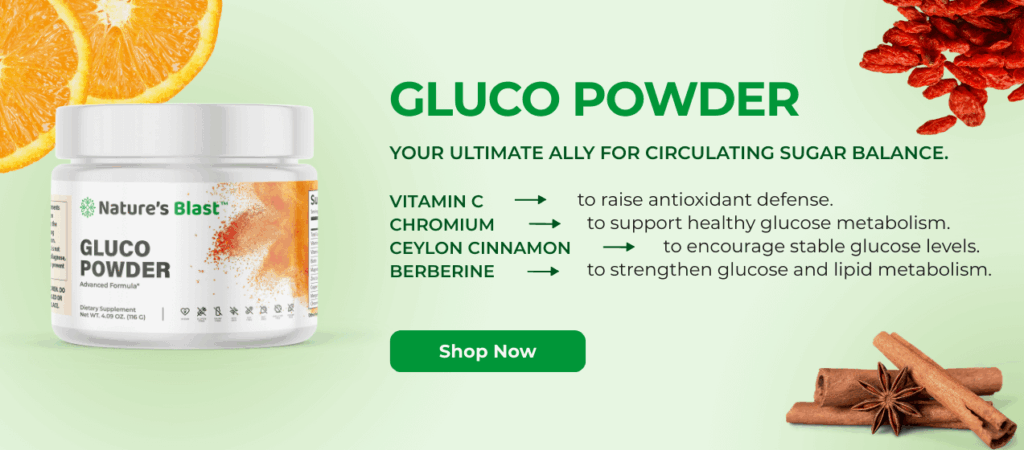
Introduce new supplements gradually when juicing and high blood pressure management combine. Some extracts may interact with existing protocols. Consult health professionals before combining multiple supplements.
7 Best Juicing Recipes for High Blood Pressure
Diet significantly impacts blood pressure. These juicing recipes for high blood pressure, featuring specific nutrients, support vascular health by delivering concentrated vitamins.
1. Beet & Berry Blast
Beets contain nitrates that potentially support vascular dilation. Berries add antioxidants that may shield cells from damage. This combination creates sweet, earthy morning flavor.
Ingredients
- 1 medium beet
- ½ cup blueberries
- ½ cup strawberries
- ½ lemon (peeled)
- 1 small apple
Juice all ingredients and serve chilled. Add 2 ounces water if needed. Beet nitrates may help modulate vessel tension.
2. Green Power Punch
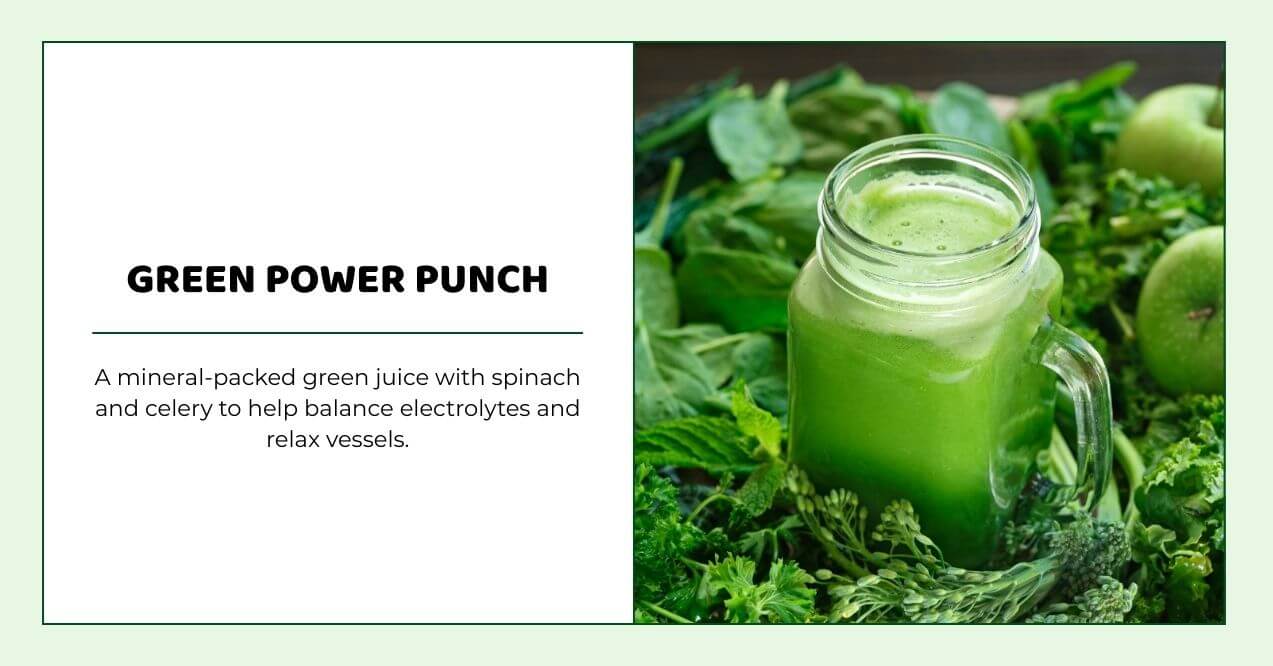
Leafy greens provide minerals for electrolyte balance. Celery adds natural sodium different from table salt. This green juice works for daily consumption.
Ingredients
- 1 cup spinach
- 2 stalks celery
- ½ cucumber
- ½ green apple
- Juice of 1 lemon
Wash produce before juicing everything together. Serve immediately to preserve nutrients. Spinach magnesium potentially supports vessel wall relaxation.
3. Citrus Beet Boost
This tart-sweet blend energizes mornings while supporting circulation. Beets and citrus work together for vascular support. Ginger adds warmth that may stimulate blood flow.
Ingredients
- 1 small beet
- 1 orange (peeled)
- 1 grapefruit (peeled)
- ½ inch ginger
Process through juicer and stir before serving. Citrus flavonoids potentially promote healthy vessel function. Consume fresh for best taste.
4. Cucumber Celery Refresh
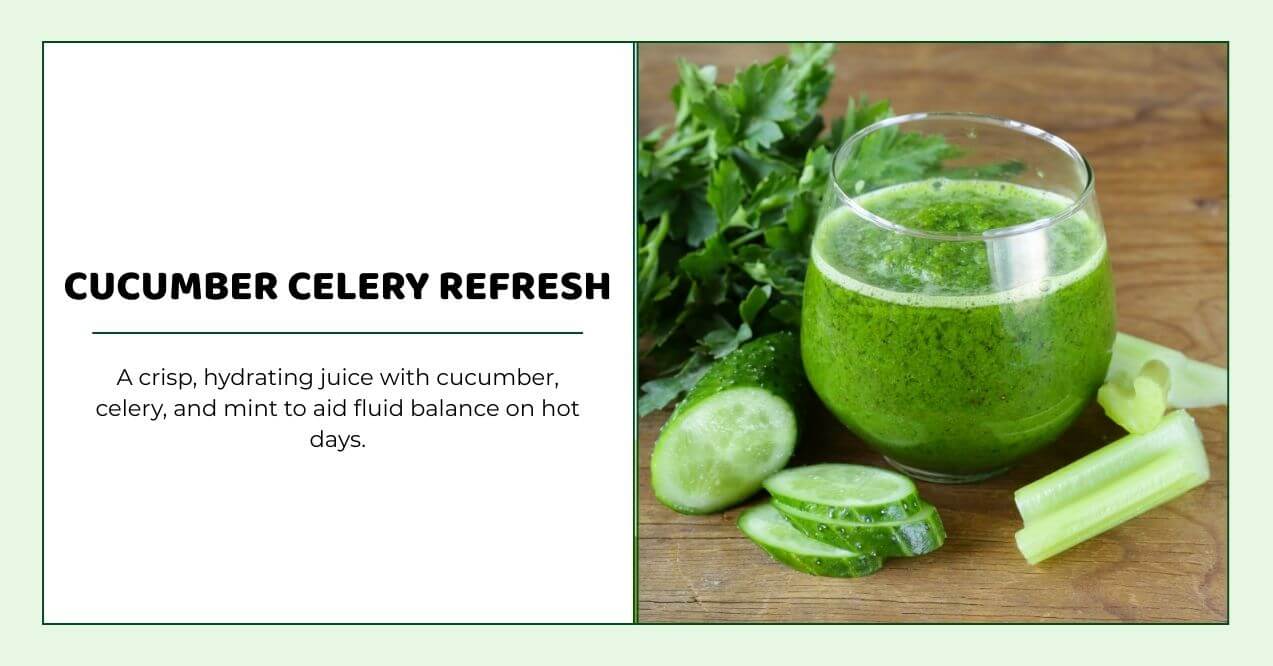
This hydrating juice suits warm days or post-activity recovery. The crisp vegetables provide minerals without excess calories. Mint adds refreshing flavor that makes drinking easier.
Ingredients
- ½ cucumber
- 2 stalks celery
- ½ green apple
- Juice of ½ lime
- 3-4 mint leaves
Juice ingredients and pour over ice slowly. Cucumber and celery potassium aids fluid balance. This recipe helps maintain hydration levels.
5. Pineapple Spinach Zest
Tropical flavors combine with leafy minerals for energy. Vitamin C from fruits pairs with iron from greens. This combination may improve nutrient absorption rates.
Similar to anti-inflammatory smoothie recipes, this juice fights inflammation naturally. Pineapple contains bromelain which may reduce inflammatory markers. The spinach adds anti-inflammatory minerals to the mix.
Ingredients
- 1 cup spinach
- ½ cup pineapple chunks
- 1 kiwi (peeled)
- ½ cucumber
Juice and serve immediately for freshness. Add cold water splash if desired. Kiwi and pineapple antioxidants protect vessel linings.
6. Carrot Apple Zinger
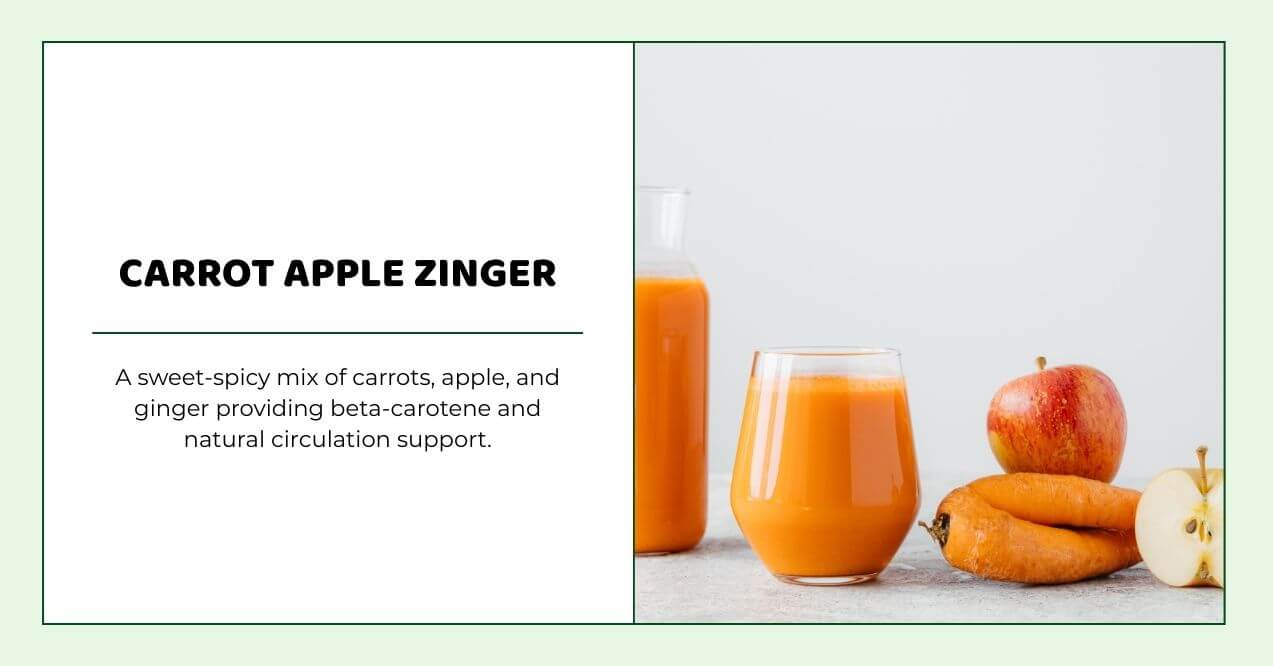
Sweet and spicy flavors make an afternoon refresher. Carrots provide beta-carotene for cell protection. Ginger may help stimulate circulation naturally.
Avoid pairing this juice with worst foods for eye health like processed snacks. The beta-carotene in carrots actually supports eye function. Choose whole food combinations for maximum benefits.
Ingredients
- 2 carrots
- 1 apple
- ½ inch ginger
- ½ lemon
Juice all ingredients together thoroughly. Chill before serving for best taste. Beta-carotene supports healthy cell function throughout vessels.
7. Watermelon Mint Cooler
This refreshing juice hydrates during summer heat. Watermelon provides citrulline for vessel flexibility. Perfect for juicing for high blood pressure management.
Ingredients
- 2 cups watermelon cubes (seedless)
- Juice of ½ lime
- 3 mint leaves
Blend and strain if desired. Serve cold for maximum refreshment. Citrulline naturally supports blood vessel flexibility.
Juicing Tips & Safety
Choose fresh produce for maximum nutrient content. Clean your juicer after each use. Balance sweet fruits with vegetables for stable energy.
Morning juicing recipes for high blood pressure works best before meals. Store fresh juice maximum 24 hours refrigerated. Drink immediately after juicing when possible.
Natural juices contain fruit sugars without fiber. Watch portion sizes to avoid sugar spikes. Some supplements may interact with juice nutrients.
For those interested in weight loss smoothie recipes, juicing offers similar benefits. Both provide concentrated nutrition in liquid form. Combine approaches for variety in your routine.
Conclusion
These juicing recipes for high blood pressure offer natural nutritional support. Combined with proper diet and lifestyle, juices may help pressure levels. Each recipe provides specific nutrients for vascular health.
Try different recipes to find your favorites. Adjust ingredients based on taste preferences. Track how you feel after regular juicing.
Consider adding targeted supplements for enhanced benefits. Monitor your response to new juice combinations. Consistency matters more than perfection with juicing routines.
Beet, celery, spinach, and citrus juices contain beneficial nutrients. These provide nitrates, potassium, and magnesium for circulation. Combine vegetables with small amounts of fruit for balance.
Diet changes including fresh juices may help manage pressure. Regular exercise and stress reduction also matter. Combining approaches works better than single remedies.
Celery contains compounds that may relax blood vessels. Apples add fiber and antioxidants for protection. This combination provides minerals and hydration together.
Daily juicing provides consistent nutrient intake safely. Vary ingredients to get different vitamins and minerals. Balance juice with whole foods throughout the day.
Do wash produce thoroughly before juicing. Don’t replace all meals with juice alone. Do drink juice fresh when possible. Don’t add excessive fruits for sweetness.
FAQ
References

